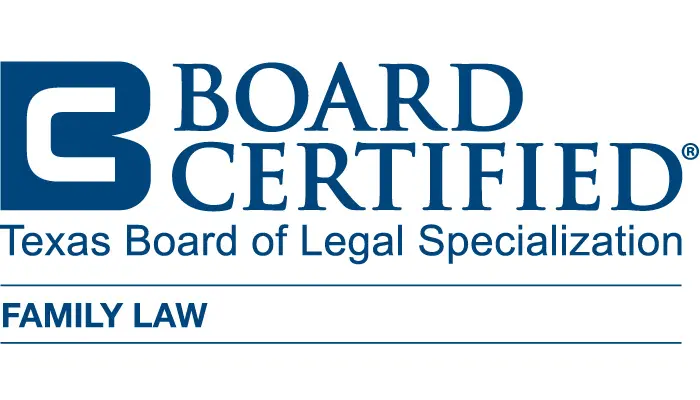Business Valuations in Texas Divorce

Understanding Business Valuation in a Texas Divorce
When valuing a closely-held business, it is essential to have a thorough knowledge of the measures of value, the methods of valuation, and Texas case law. During a divorce, business valuation relies on well-established methods, procedures, and guidelines that must be followed. The choice of the method to be used depends on the type of business being valued and the judgment of the appraiser.
How Is a Business Valued in a Divorce?
The deciding factors of how to value a business for divorce are obtained from either the assets of the business, its earning capacity, or a combination of both. Although there is a great deal of subjective judgment involved, the appraiser should rely upon specific generally accepted methodologies and restrictions imposed by established case law.
During a Texas divorce, valuing a business, especially a closely-held one, usually follows three main approaches:
- Net asset value/Cost approach
- Market approach
- Income approach
The net asset value method looks at the market value of assets less the value of liabilities. This is generally the floor value of the business. The market approach compares the company to transactions involving similar companies that have been sold. The income approach looks at the cash flow and projections of the company.
Business Valuation in Divorce FAQs
What Documents Will a Valuator Ask For?
While each business is unique, there are a few key documents that you will need for a business valuation. Divorce cases involving business valuations may ask for these items:
- The past five years’ financial statements and income tax returns
- List of assets and debts of the business
- Aged accounts receivable and payable
- Contracts
- Budgets and financial projections
- Marketing materials
- Documents and information particular to the industry
After reviewing the initial information, the business valuator will likely request additional documentation. This will often come as the valuator gains a better understanding of that business and its unique attributes. Collecting these documents may take some time, but it is vital to obtaining a correct business valuation.
What Adjustments are Made During Business Valuations?
When determining value, by whatever method adjustments may have to be made by the expert to set a more accurate value. Some standard adjustments made in valuing a business are a lack-of-marketability discount due to the recognition that there is little or no market for the stock of a closely-held corporation, and a minority-interest discount which reflects the minority interest owner’s inability to control dividend payments, company policy or liquidation of company assets.
The appraiser must know that certain factors generally included in the valuation methods must be separately accounted for in a divorce case. The expert must consider the spouse’s goodwill and the willingness of the party not to compete with the business. The value attributable to the goodwill of a divorcing spouse must be excluded from the value of the business or professional practice under evaluation.
Why a Goranson Bain Ausley Attorney?
At Goranson Bain Ausley, our attorneys offer considerable experience with business valuation cases. Our lawyers understand the complexities of closely-held businesses and the financial and emotional issues that arise when they must be assessed for division. Our attorneys will guide you through the process of divorce and business valuation, working to protect your investment in your businesses, present your case persuasively, and strive to arrive at terms that represent a favorable resolution. Contact us today.
Awards & Credentials
- Thomas P. Goranson 1997
- Thomas L. Ausley 1997
- Diana S. Friedman 1998
- Thomas A. Greenwald 2003
- Kathryn J. Murphy 2004
- Eric Robertson 2007
- Kelly Ausley-Flores 2009
- Kristal Thomson 2014
- Aimee Pingenot Key 2015
- Kristen A. Algert 2017
- P. Lindley Bain 2020
- Ryan R. Bauerle 2022
- Lindsey Obenhaus 2023
- Charla Davies 2024

- Angeline Lindley Bain 2015 2014 2013 2012 2011 2009 2008
- Hayley Collins Blair 2021 2018
- Kevin Davidson 2025
- Jeff Domen 2025
- Esther R. Donald 2025
- Diana S. Friedman 2017 2016 2015 2013
- Thomas P. Goranson 2011 2009 2008
- Thomas A. Greenwald 2022 2018 2012 2011 2009 2008
- Aimee Pingenot Key 2025 2024 2020 2019 2017
- Paula Larsen 2018 2017 2016 2015 2014 2013 2012 2011 2010 2008
- Beth E. Maultsby 2010
- Kathryn J. Murphy 2024 2023 2020 2019 2018 2017 2010 2009 2008
- Lindsey Obenhaus 2025 2024 2023 2022 2021
- Katie Flowers Samler 2020 2019 2018


- Thomas L. Ausley 1980
- Thomas P. Goranson 1980
- Gary L. Nickelson 1984
- Kathryn J. Murphy 1995
- Diana S. Friedman 1996
- Kristen A. Algert 1997
- Thomas A. Greenwald 1997
- Eric Robertson 1997
- Kelly Ausley-Flores 2000
- Curtis W. Harrison 2002
- Cindy V. Tisdale 2003
- Jeff Shore 2006
- Clint Westhoff 2006
- Jeff Domen 2009
- Kristal Thomson 2009
- Angel J. Berbarie 2010
- P. Lindley Bain 2012
- Aimee Pingenot Key 2012
- Kevin Davidson 2017
- Charla Davies 2017
- Rob Frazer 2018
- Ryan R. Bauerle 2018
- Hayley Collins Blair 2019
- Lindsey Obenhaus 2019
- Katie Flowers Samler 2019
- Jonathan James 2020
- Chris Nickelson 2021
- Chandler Rice Winslow 2023
- Kristiana Butler 2024
- Cassidy Pearson 2024
- Angelica Rolong Cormier 2024
























































